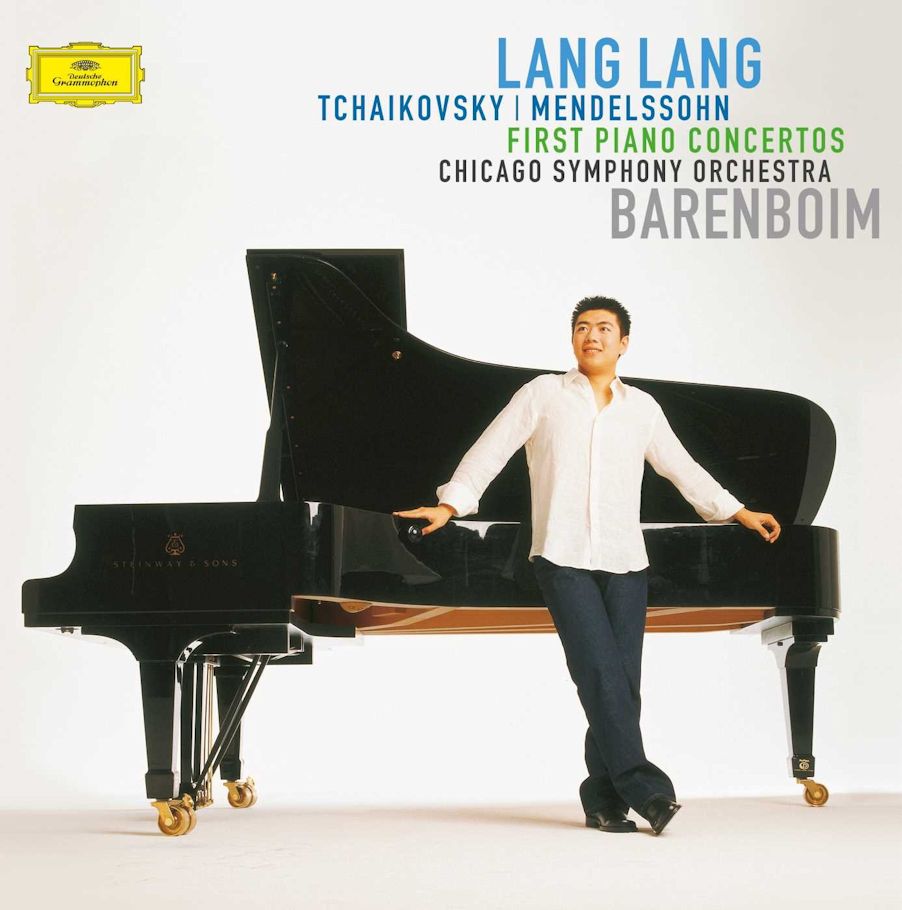

| Lang Lang (Chinese: 郎朗;
pinyin: Láng Lǎng; born
14 June 1982) is a Chinese concert pianist who has performed with leading
orchestras in China, the United States, Europe, and elsewhere. Active since
the 1990s, he was the first Chinese pianist to be engaged by the Berlin Philharmonic,
the Vienna Philharmonic and some top American orchestras. A Chicago
Tribune music critic called him "the biggest, most exciting young keyboard
talent I have encountered in many a year of attending piano recitals"
When Lang was nine years old, he intended to audition for Beijing's Central Conservatory of Music, but, having difficulties with his lessons, was expelled from his piano tutor's studio for "lack of talent". Another music teacher at his state school noticed Lang's sadness, and put the score of Mozart's Piano Sonata No. 10 in C major, K. 330 on the piano; she asked him to play the second movement, which reminded Lang of his love for the instrument. "Playing the K. 330 brought me hope again," he recalled. Lang was later admitted into the conservatory, where he studied under Professor Zhao Ping-Guo. In 1993, Lang won the Xinghai National Piano Competition in Beijing and in 1994 was awarded first prize for outstanding artistic performance at the Fourth International Competition for Young Pianists in Ettlingen, Germany. In 1995, at 13 years of age, he played the Op. 10 and Op. 25 études by Chopin at the Beijing Concert Hall; in the same year, Lang also won first place at the International Tchaikovsky Competition for Young Musicians in Japan, playing Chopin's Piano Concerto No. 2 with the Moscow Philharmonic Orchestra in a concert broadcast by NHK Television. When he was 14, Lang was a featured soloist at the China National Symphony's inaugural concert, which was broadcast by China Central Television and attended by President Jiang Zemin. In 1997, at 15 years of age, Lang and his father left for the United States, where Lang began studies with Gary Graffman at the Curtis Institute of Music in Philadelphia, Pennsylvania.[Since the interview below was done so near the beginning of his career, the biography will stop at this point. Needless to say, since that time, the pianist has become a world-wide sensation, with numerous notable performances and recordings, both audio and video. Most biographical articles will list many of them, and can be found easily via internet searches.] |
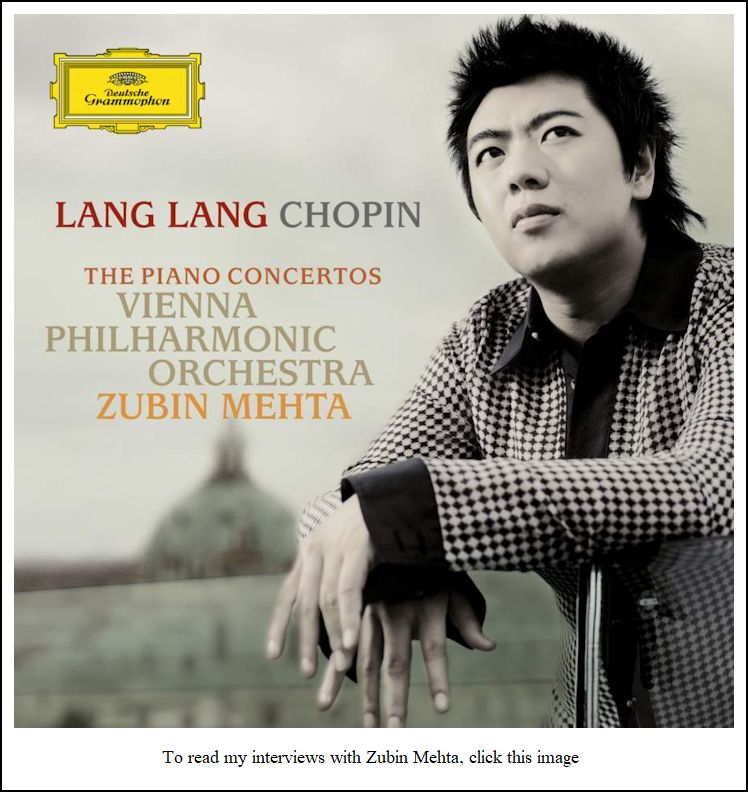 BD:
Are some pianos more friendly?
BD:
Are some pianos more friendly?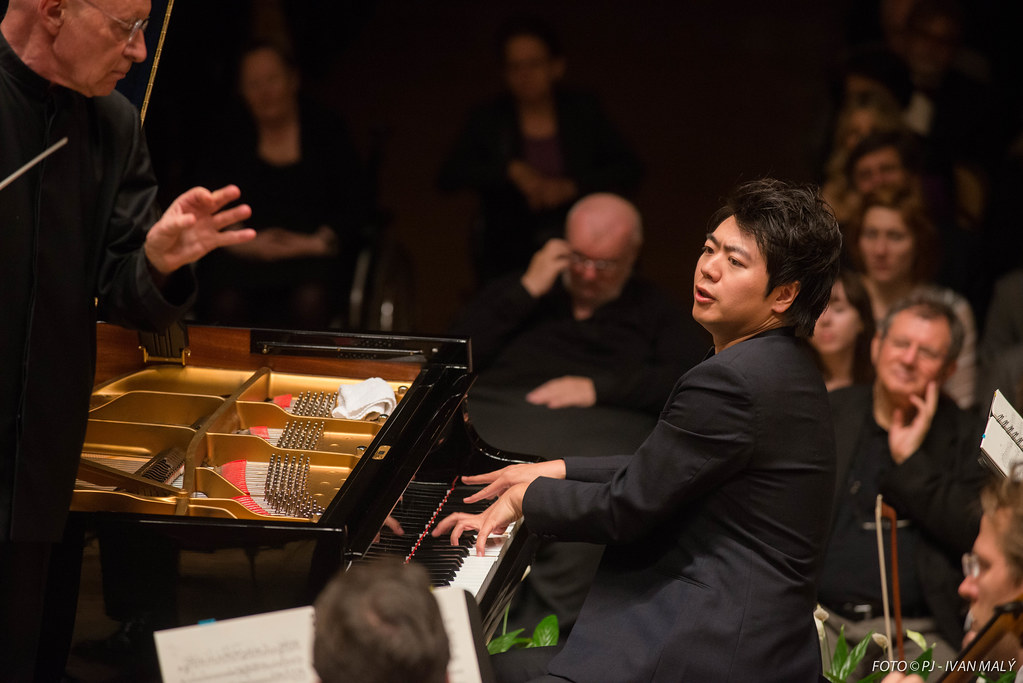
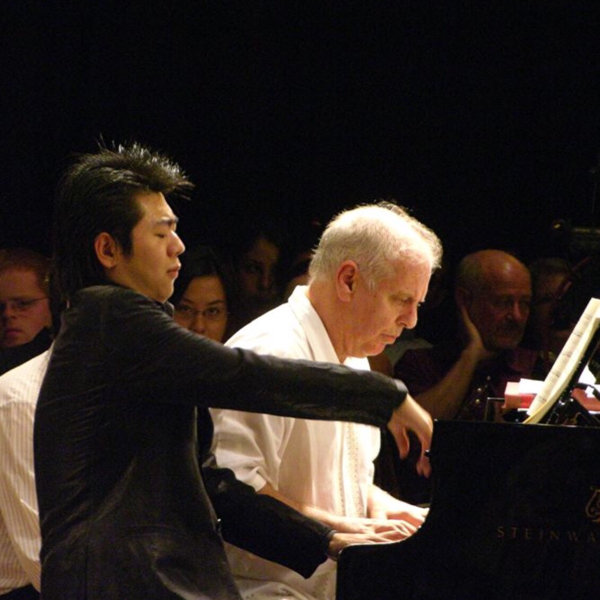 BD: Is this partly because you can’t draw a bow across
the strings?
BD: Is this partly because you can’t draw a bow across
the strings?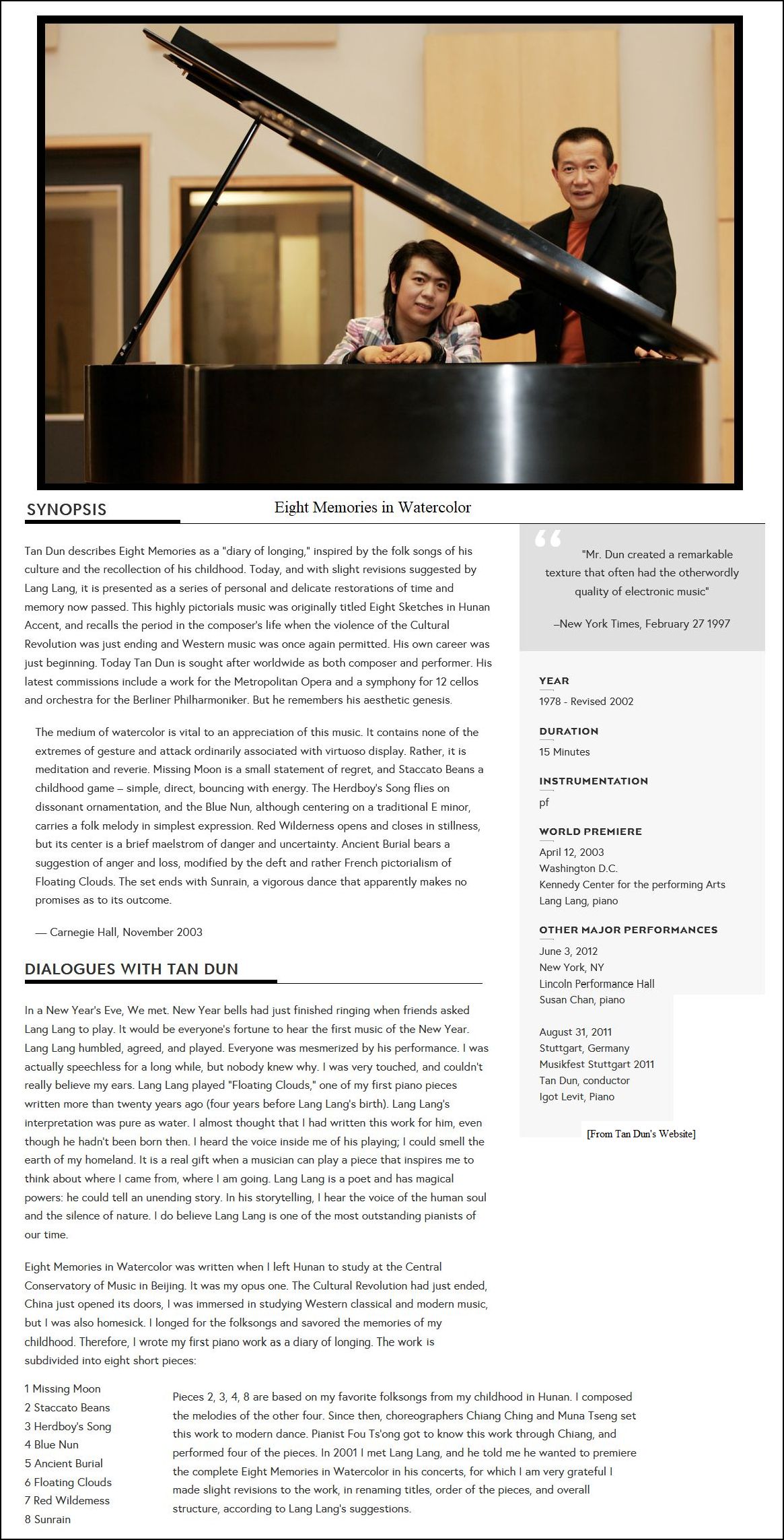
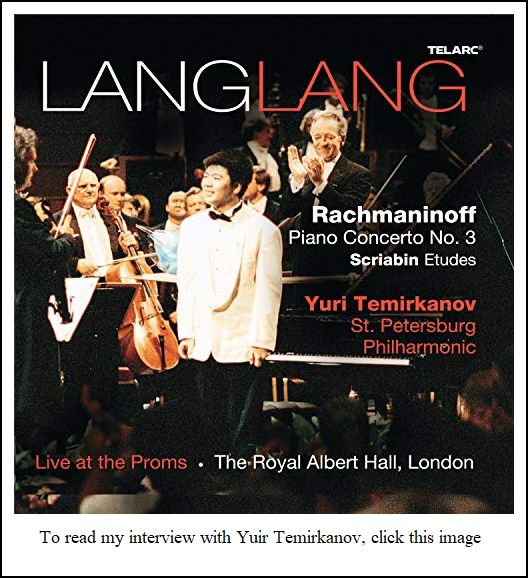 Lang Lang: It is always just for
me, for each night. I always use a varied repertoire for a recital.
I select from real classical, to a big romantic, and back to a small
lovely romantic, to an impressionist, and then give them some contemporary
stuff. I always want it mixed, so it’s for all audiences and all
ages. I probably play for friends and young people, but I do like
to play more classical pieces because that’s the soul. Then I will
tell them they can see how music developed through another door, to another
style, and to another time, another century. It’s like when you see
a movie from the old time to the modern times. It should be exciting.
Lang Lang: It is always just for
me, for each night. I always use a varied repertoire for a recital.
I select from real classical, to a big romantic, and back to a small
lovely romantic, to an impressionist, and then give them some contemporary
stuff. I always want it mixed, so it’s for all audiences and all
ages. I probably play for friends and young people, but I do like
to play more classical pieces because that’s the soul. Then I will
tell them they can see how music developed through another door, to another
style, and to another time, another century. It’s like when you see
a movie from the old time to the modern times. It should be exciting.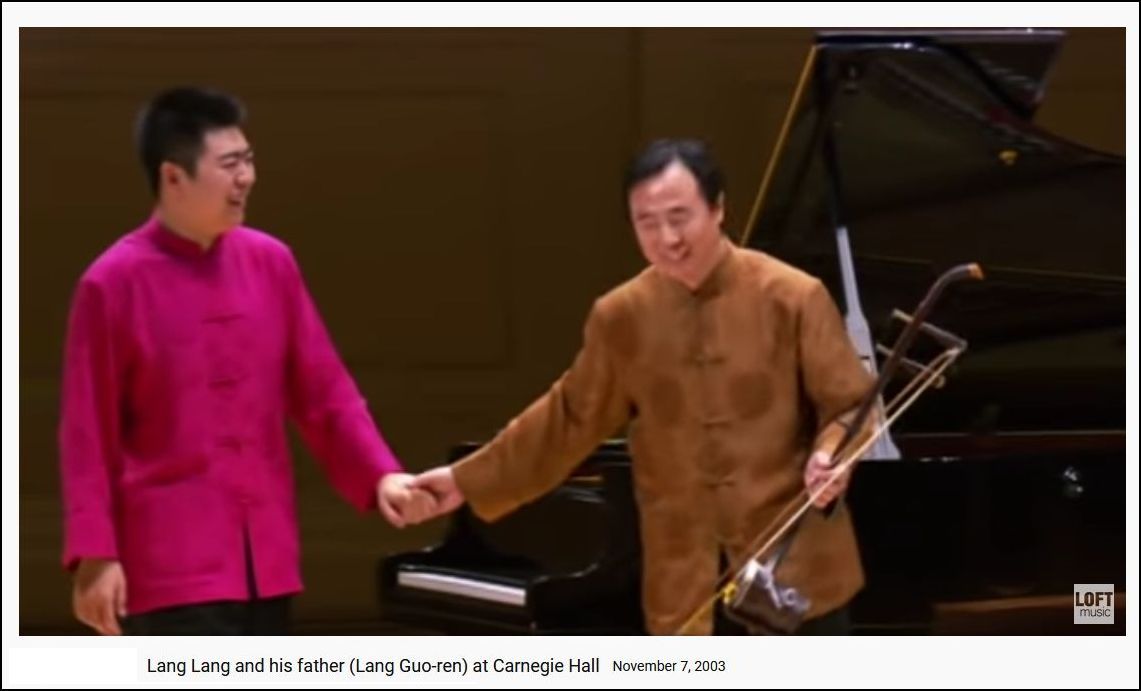
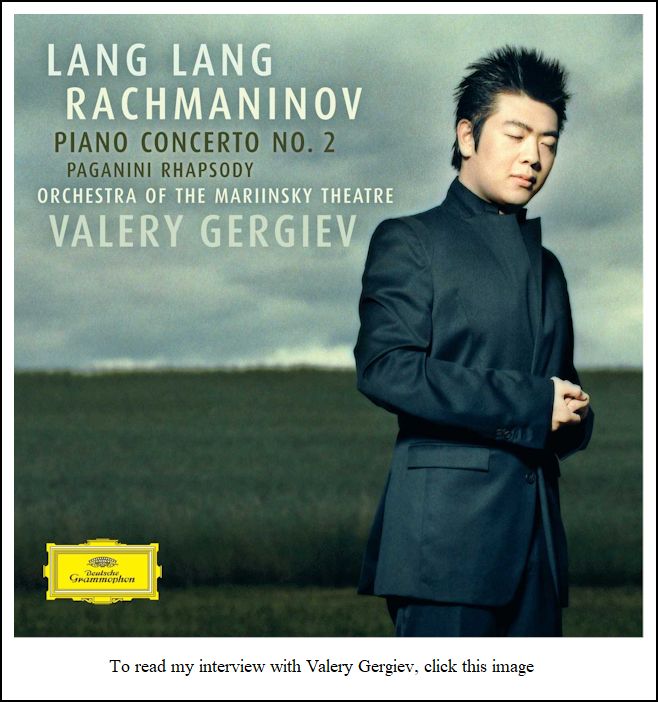 BD: Is that a good feeling, or is it scary?
BD: Is that a good feeling, or is it scary?This conversation was recorded in Chicago on October 11, 2002. Portions were broadcast on WNUR in 2005 and 2008. This transcription was made in 2020, and posted on this website at that time. My thanks to British soprano Una Barry for her help in preparing this website presentation.
To see a full list (with links) of interviews which have been transcribed and posted on this website, click here.
Award - winning broadcaster Bruce Duffie was with WNIB, Classical 97 in Chicago from 1975 until its final moment as a classical station in February of 2001. His interviews have also appeared in various magazines and journals since 1980, and he now continues his broadcast series on WNUR-FM, as well as on Contemporary Classical Internet Radio.
You are invited to visit his website for more information about his work, including selected transcripts of other interviews, plus a full list of his guests. He would also like to call your attention to the photos and information about his grandfather, who was a pioneer in the automotive field more than a century ago. You may also send him E-Mail with comments, questions and suggestions.